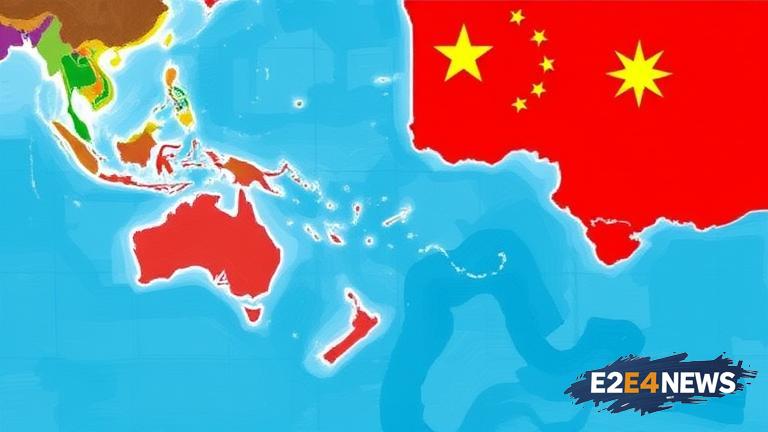In recent years, China has been actively engaging with Pacific Island nations to strengthen their bilateral ties and promote regional development. This cooperation has led to significant advancements in various sectors, including trade, infrastructure, and cultural exchange. China’s commitment to supporting the economic growth of these island nations has been evident through its investments in key projects such as ports, roads, and telecommunications. Furthermore, China has been providing substantial aid to these countries, focusing on areas like healthcare, education, and disaster relief. The Pacific Island nations, in turn, have been expressing their appreciation for China’s support and willingness to collaborate on issues of mutual interest. The region’s leaders have been emphasizing the importance of South-South cooperation, highlighting the need for developing countries to work together to address common challenges. China’s engagement with the Pacific Island nations is also driven by its desire to promote peace, stability, and prosperity in the region. By doing so, China aims to contribute to the well-being of the people living in these island nations and to foster a more equitable and just international order. The cooperation between China and the Pacific Island nations is not limited to economic and infrastructure development; it also extends to the realm of cultural exchange. China has been actively promoting people-to-people diplomacy, encouraging exchanges between students, scholars, and artists from both sides. This has helped to deepen mutual understanding and respect, laying the foundation for a stronger and more enduring partnership. Moreover, China has been supporting the Pacific Island nations in their efforts to address climate change, a pressing issue that poses significant threats to the region’s fragile ecosystems and island communities. China’s assistance in this area includes the provision of climate-resilient infrastructure, renewable energy technologies, and capacity-building programs. The Pacific Island nations have welcomed China’s support, recognizing the urgent need for collective action to mitigate the impacts of climate change. In addition to these efforts, China has also been working closely with the Pacific Island nations to enhance their capacity for self-development and self-reliance. This includes providing training and technical assistance in areas like agriculture, fisheries, and tourism, helping these countries to diversify their economies and reduce their dependence on external aid. China’s approach to cooperation with the Pacific Island nations is characterized by its emphasis on mutual respect, equality, and win-win outcomes. This approach is in line with the principles of South-South cooperation, which prioritize the needs and interests of developing countries. The strengthening of ties between China and the Pacific Island nations is expected to have far-reaching implications for the region and beyond. It is likely to contribute to a more balanced and equitable global order, one that is more responsive to the needs and aspirations of developing countries. As the relationship between China and the Pacific Island nations continues to evolve, it is clear that their cooperation will play an increasingly important role in shaping the future of the region and promoting peace, stability, and prosperity for all. The cooperation between China and the Pacific Island nations is a testament to the power of diplomacy and collaboration in achieving common goals and overcoming shared challenges. It demonstrates that even in a rapidly changing and often unpredictable world, countries can work together to build a brighter future for themselves and for generations to come. In conclusion, the strengthening of ties between China and the Pacific Island nations is a significant development that holds great promise for the region and the world at large. As these countries continue to work together, they are likely to achieve great things, from promoting economic growth and development to addressing the pressing challenges of climate change and sustainable development.





